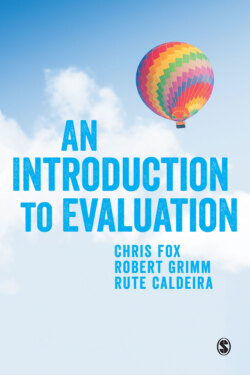Читать книгу An Introduction to Evaluation - Chris Fox - Страница 54
На сайте Литреса книга снята с продажи.
The ‘anthropo’-centric approach to ethics in evaluations
ОглавлениеThere are nevertheless critiques to the main and commonly accepted evaluation guiding principles. Schwandt very directly writes that most principles ‘have been developed largely against the foreground of a Western framework of moral understandings’ (2007: 400). More specifically, Schwandt argues that these principles:
tend to regard, without question, notions such as individualistic self-expression, personal autonomy, individual growth and goal attainment, egalitarianism, meritocracy, and competitiveness, as normative. (2007: 400)
In short, the main guiding principles that are the most commonly advised by different professional organisations may not be recognised and understood in all cultures. Schwandt finds it relevant to introduce this element of cultural relativism, emphasising the point that ‘the meaning of acting ethically (being just, fair, honest, etc.) is shaped, in a significant way, by how persons are situated in cultural contexts’ (2007: 401).
There may indeed be several contexts where this cultural relativism may require a more flexible approach. For instance, in certain cultures granting women confidentiality and anonymity by having individual, semi-structured interviews with them this may lead to retaliation from their husbands/partners, who may feel uncomfortable with their wives being interviewed privately. In these cases, the evaluator must allow the principle of ‘do no harm’ to prevail over the principle of confidentiality and anonymity, and either talk to women in their family context or in the context of a focus group discussion.
